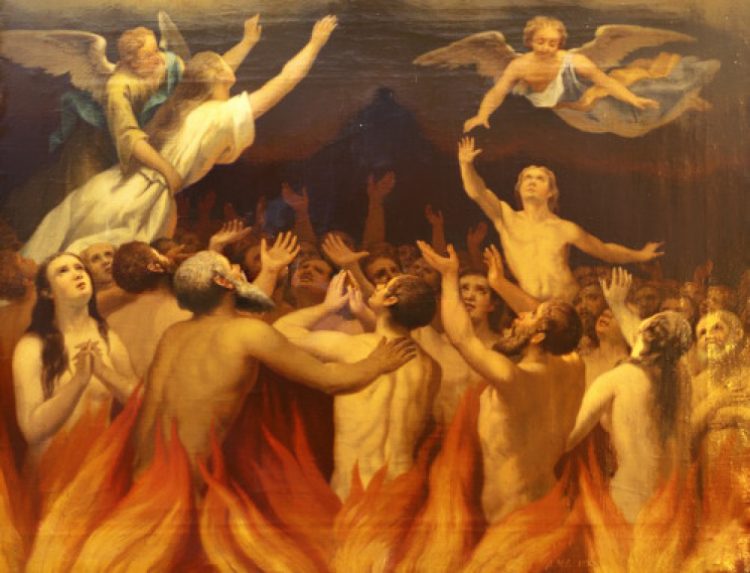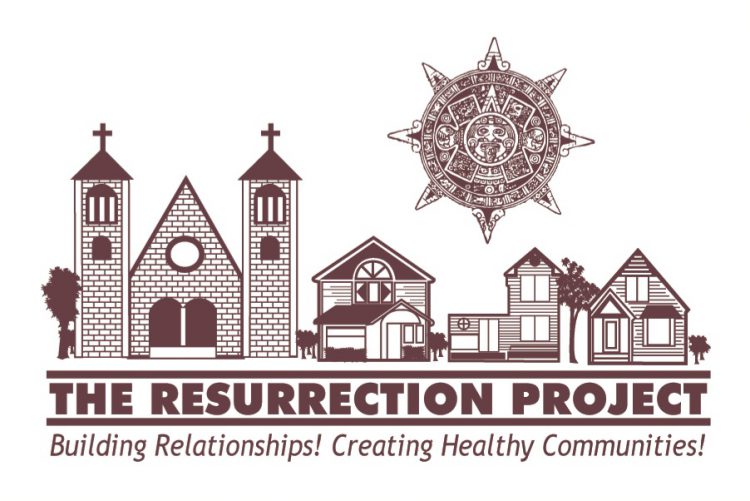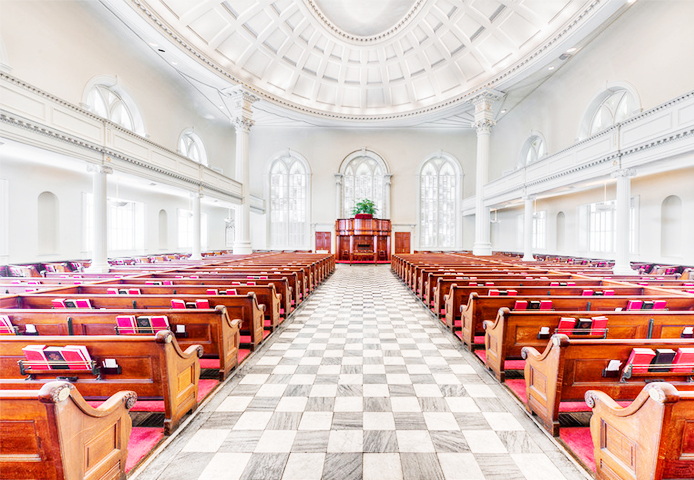More questions about purgatory that don’t seem to find ready answers by searching online. Could it be that if half of U.S. Roman Catholics don’t understand the Mass, numbers may be even worse for passing a test on purgatory?
Here’s the question: does Christ’s return affect souls in purgatory? If I am in need of 1,500 years of purgation for — well, let’s not get into it — and if Jesus returns in 988th year of my time in purgatory, do I need to stay in purgatory another 512 years? It seems like a good question if you look at this answer:
The Church believes that almost everyone else, although not bad enough to go to hell, aren’t good enough to skate into heaven with no need for some introspection and purification.
Think of it like this: Joe and Max were both born on the same day and both died on the same day. Joe was a gambler, boozer, and womanizer, and he was dishonest, lazy, and undependable. Max, on the other hand, spent his life obeying the Ten Commandments, practicing virtue, and loving God and neighbor. Just before dying, Joe repents of his old ways and accepts the Lord into his heart. Should Joe and Max both go to heaven at the same time? Catholicism teaches no. The Church believes that Jesus’ death allows everyone the possibility of heaven, and his mercy grants forgiveness, but his justice demands that good be rewarded and evil punished — in this life or the next. If one man struggles all his life to be good while another lives a life of selfishness, greed, and comfort, both can’t walk through the pearly gates side by side.
Wait. Isn’t there a parable about this?
“For the kingdom of heaven is like a master of a house who went out early in the morning to hire laborers for his vineyard. 2 After agreeing with the laborers for a denarius[a] a day, he sent them into his vineyard. 3 And going out about the third hour he saw others standing idle in the marketplace, 4 and to them he said, ‘You go into the vineyard too, and whatever is right I will give you.’ 5 So they went. Going out again about the sixth hour and the ninth hour, he did the same. 6 And about the eleventh hour he went out and found others standing. And he said to them, ‘Why do you stand here idle all day?’ 7 They said to him, ‘Because no one has hired us.’ He said to them, ‘You go into the vineyard too.’ 8 And when evening came, the owner of the vineyard said to his foreman, ‘Call the laborers and pay them their wages, beginning with the last, up to the first.’ 9 And when those hired about the eleventh hour came, each of them received a denarius. 10 Now when those hired first came, they thought they would receive more, but each of them also received a denarius. 11 And on receiving it they grumbled at the master of the house, 12 saying, ‘These last worked only one hour, and you have made them equal to us who have borne the burden of the day and the scorching heat.’ 13 But he replied to one of them, ‘Friend, I am doing you no wrong. Did you not agree with me for a denarius? 14 Take what belongs to you and go. I choose to give to this last worker as I give to you. 15 Am I not allowed to do what I choose with what belongs to me? Or do you begrudge my generosity?’[b] 16 So the last will be first, and the first last.” (Matt 20)
What about a different parable, like one about surgery?
It may help to think of the purgatory in terms of a major operation to save a life. Say a doctor performs surgery on someone’s heart or brain and removes a cancerous tumor. The surgery achieves the main objective, but the wound needs to heal, and the incision needs to be cleaned and rebandaged. Purgatory is like that secondary part of recovery — the healing, cleaning, and bandaging. The belief is that the evil of sin is revealed to the person so she can totally and absolutely reject even the most venial and smallest of sins.
Well, what happens to someone who is recovering from surgery when Jesus returns? Will there still be weeping, hunger, sorrow, and forming scar tissue after Christ inaugurates the new heaven and new earth?
Looks to me like this is a defect. And this answer only compounds the problem:
All souls will receive resurrected bodies. The damned will receive eternal punishment in the flesh. Purgatory is meant to purify the soul. Once we receive our resurrected bodies, they will need completely purified souls so Purgatory ends with the Resurrection of the body.
If resurrected bodies need “completely purified souls, all the more reason to remain in purgatory for the correct amount of time.
Unless, of course, Jesus can take away sin and all its stains.






